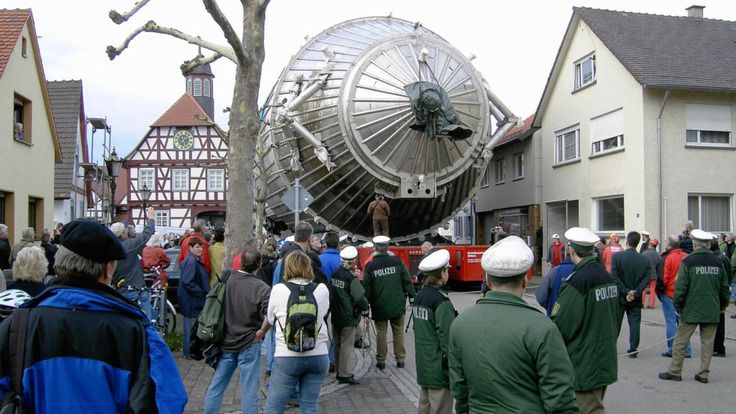When she entered college, Laura Bergsten was not planning on majoring in physics.
“I had a lot of interest in other programs, like government and writing,” Bergsten says. “But the classes I really enjoyed were more qualitative. So I just kept taking classes I liked, and they happened to be physics classes.”
Bergsten is a junior at Dartmouth College. This winter, she decided to spend the semester performing research at CERN through a program sponsored by the University of Michigan and funded by the Richard Lounsbery Foundation.
The UM-CERN Research Abroad Program gave Bergsten and five other students from US universities (pictured above) the opportunity to continue their college education in a foreign country—much like a typical study abroad experience but with one important difference: “I don’t take classes,” Bergsten says. “I spend my time working, and I learn new things through working, like programming languages.”
At Dartmouth, Bergsten conducts research in the physics department. But coming to CERN, the world’s largest physics laboratory, changed her perspective about the scientific process.
“Physics is much more collaborative than I thought,” Bergsten says. “People are always going to meetings and talking to other scientists. It’s not just sitting in a lab by yourself.”
The program was inspired by the Research Experience for Undergraduates summer student program at CERN funded by the National Science Foundation, according to Steve Goldfarb, who is the onsite coordinator for both.
“We have a large number of students applying for the NSF-funded summer student program, usually more than 200 applicants for 15 slots,” Goldfarb says. “There was a wish by many students and mentors for the students to stay longer at CERN and a growing demand by US and other institutes for undergraduate students to work on these projects.”
This new program, which matches students with an advisor and an analysis group for three to four months, gives students a taste for what real physics research is like.
“I received a project from my mentor; he gave me the grand scope of things and outlined our goals; and then he set me loose,” says Albert Liu, a junior at the University of Michigan. “This is not something most students in undergraduate get to do. Its quite different to be able to think for yourself.”
The program has secured funding for the next three years, during which time it will sponsor four students per semester to perform research at CERN. Goldfarb is very excited about the progress the students made during their time at CERN.
“Many of the students I see coming here have brand new passports,” Goldfarb says. “Here they have a chance to work with people from all over the world and learn about other cultures and cutting edge research, and I think that is very unique to CERN. It’s a brilliant place and you can see the students grow tremendously during the few months they’re here.”







